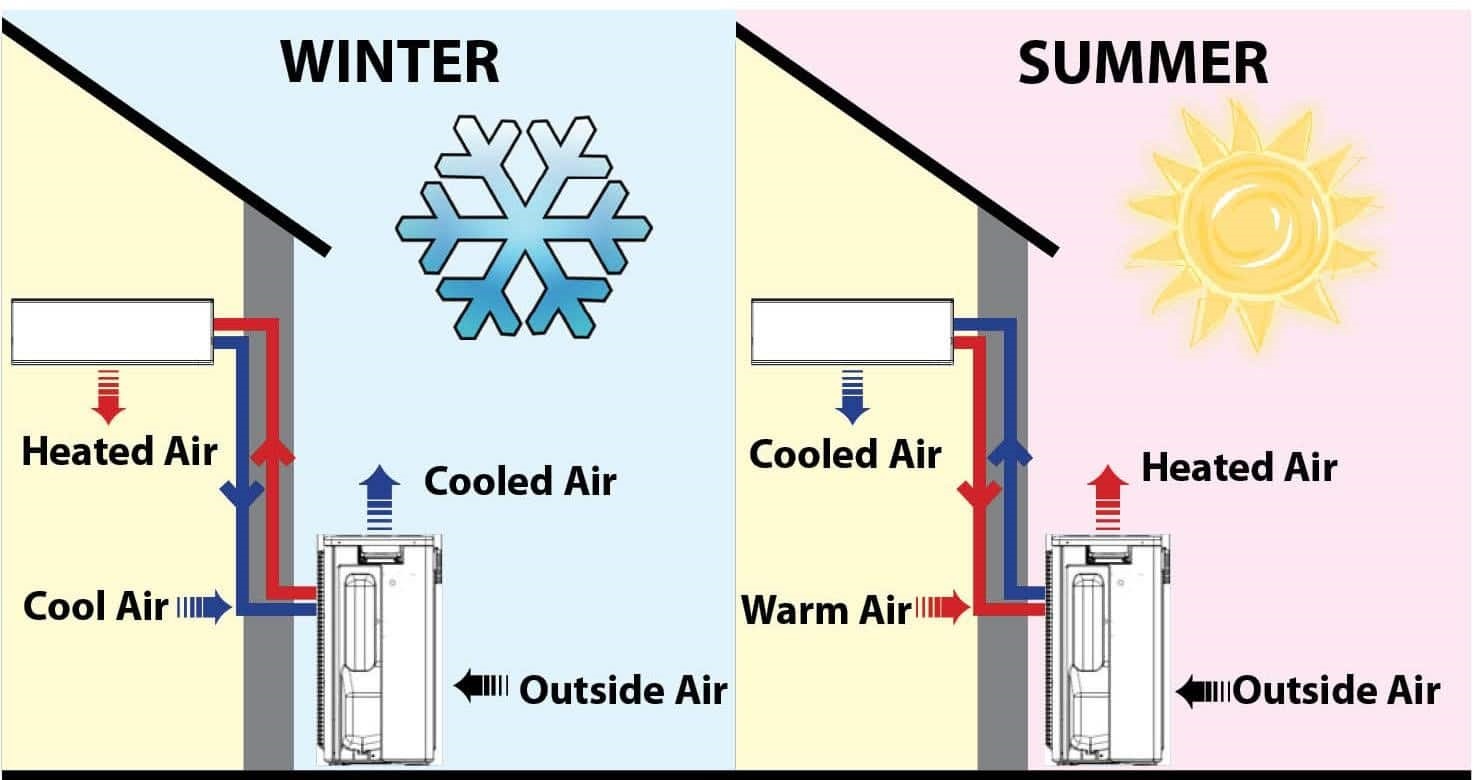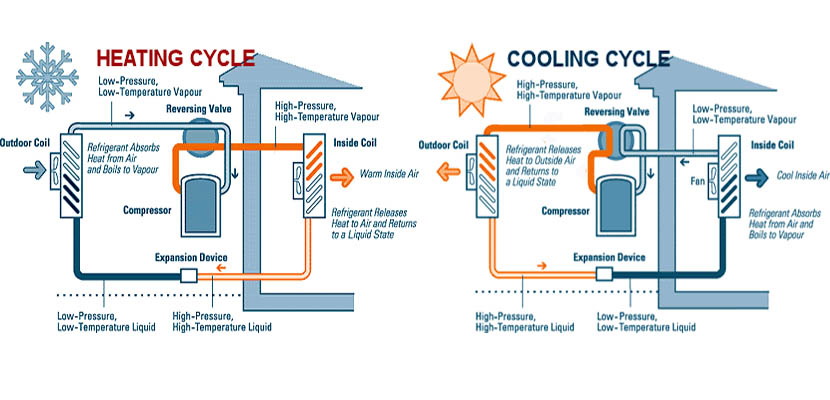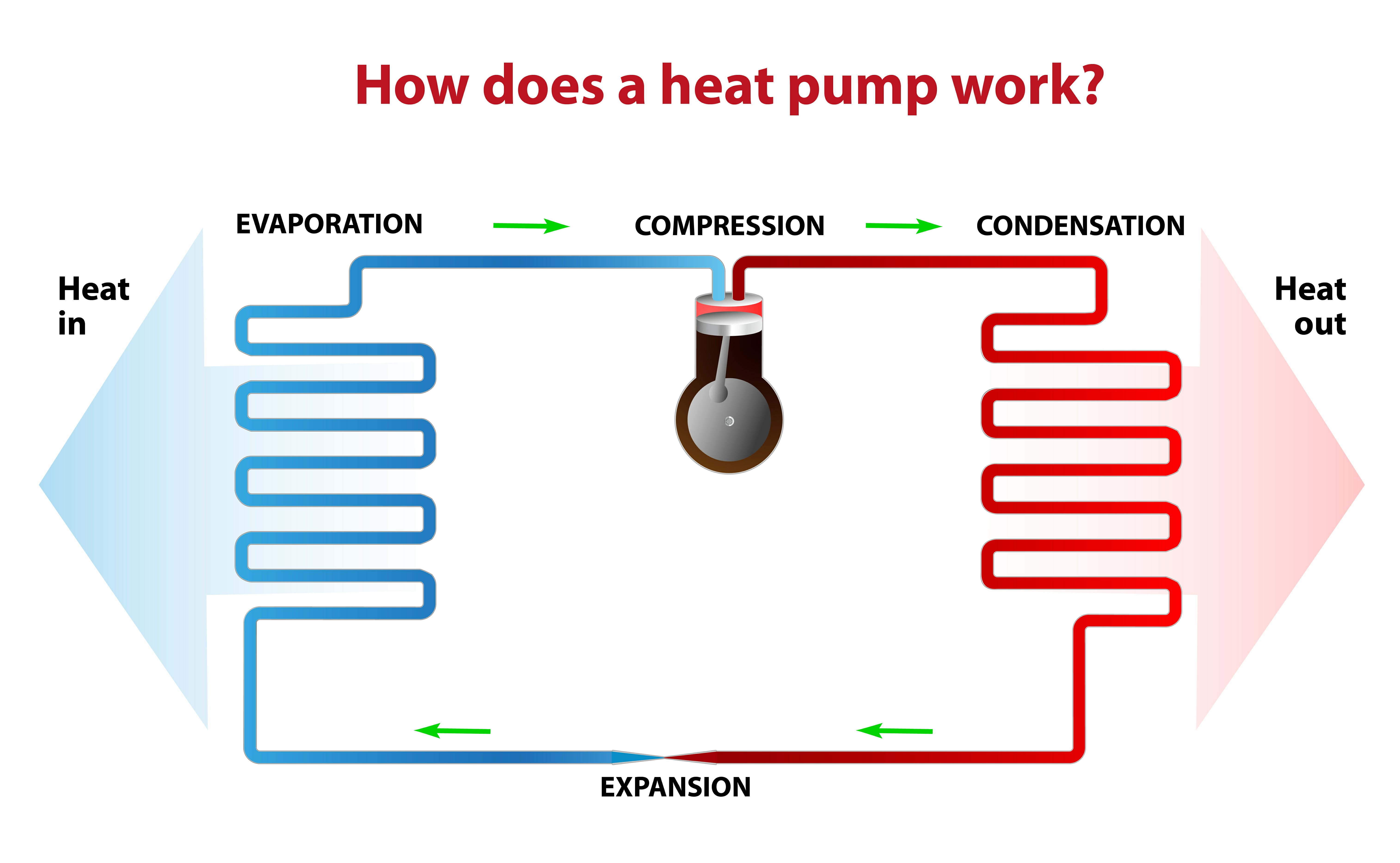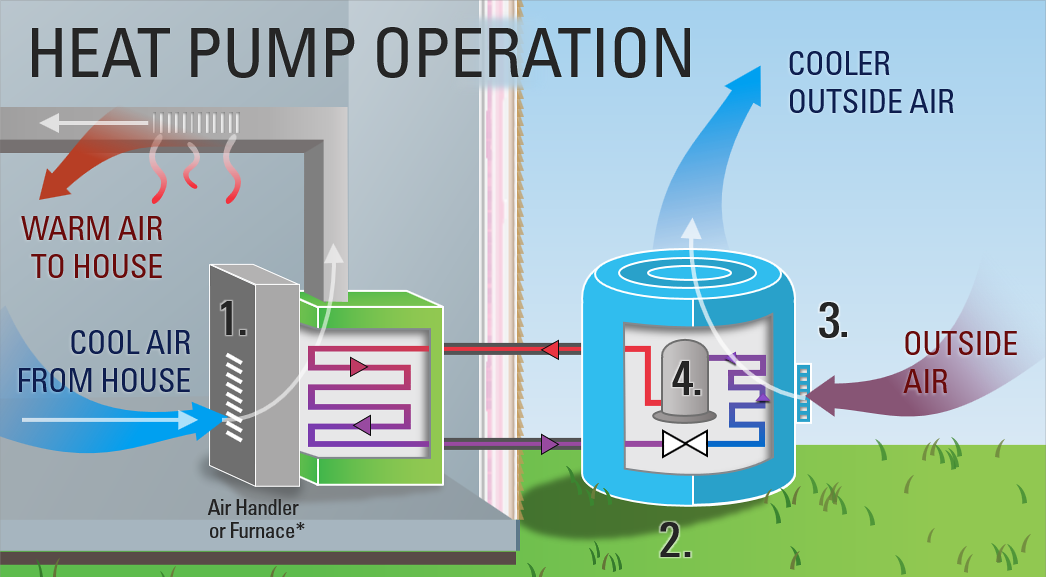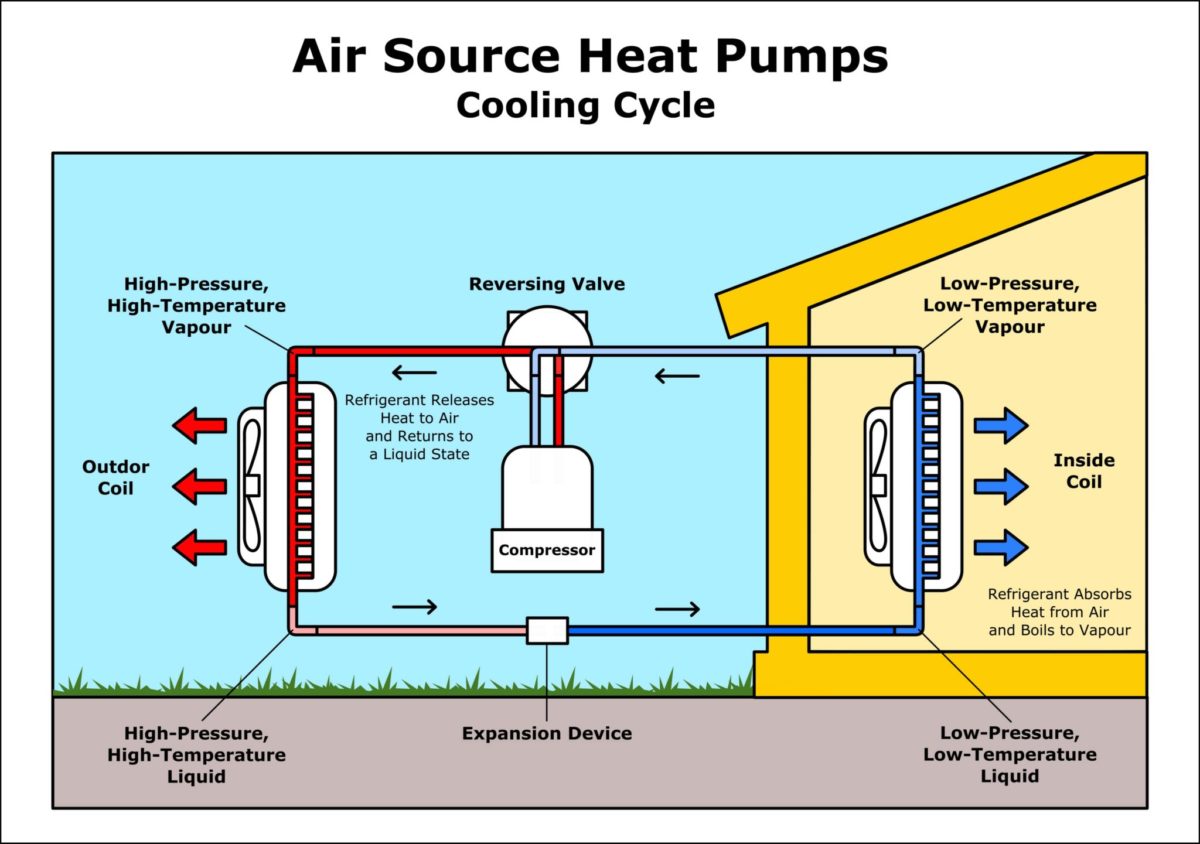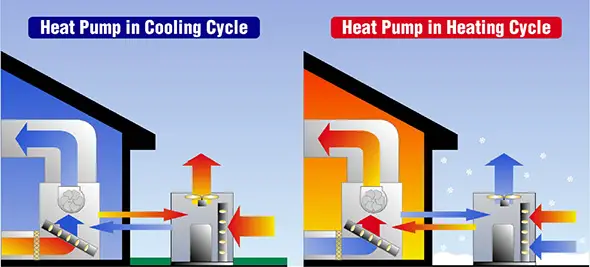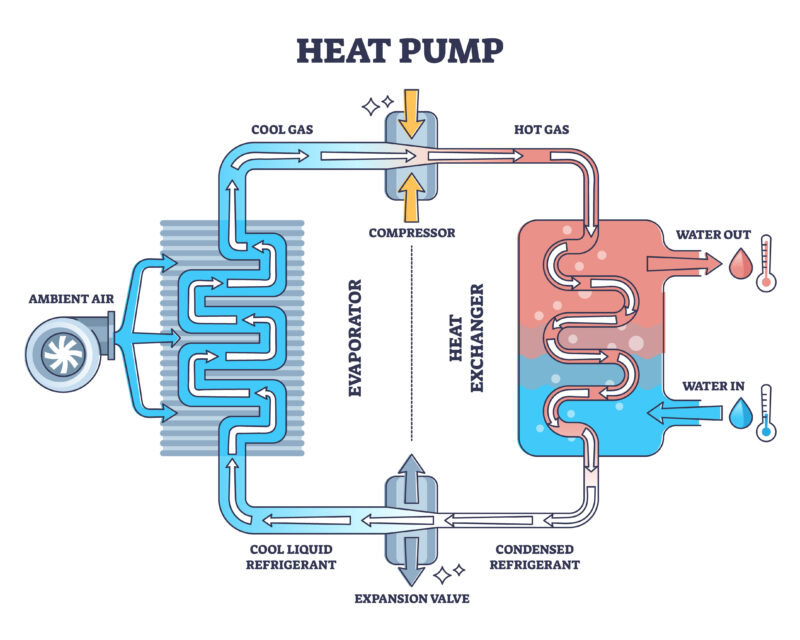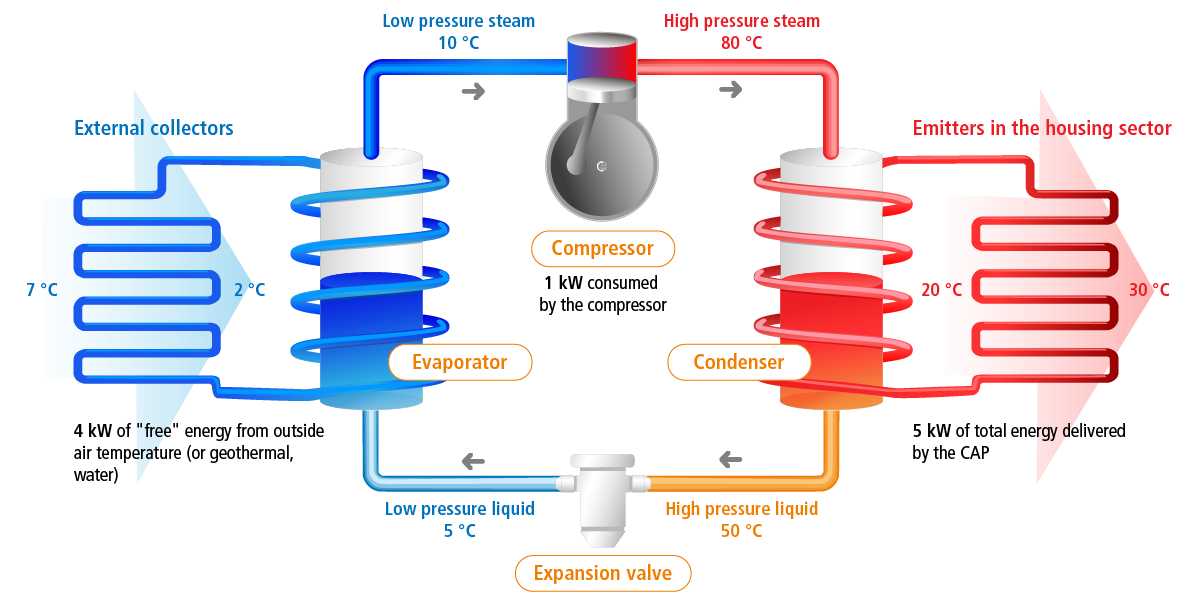What Are Heat Pumps And How Do They Work
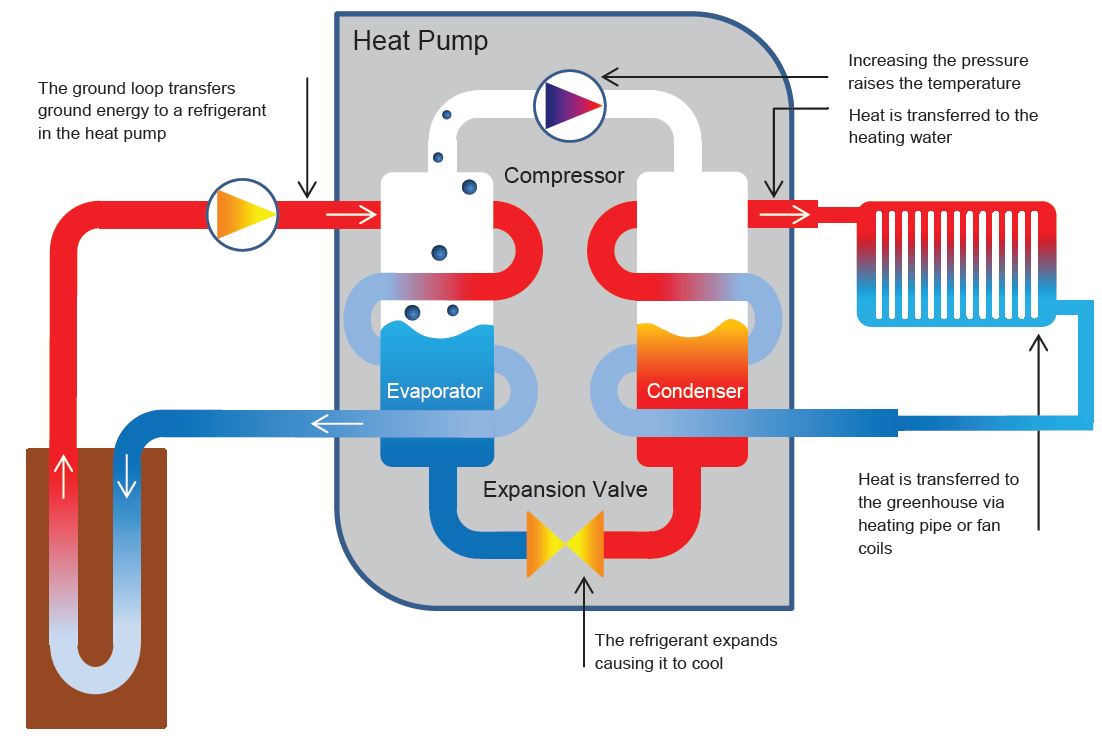
Frequently Asked Questions About Heat Pumps
Heat pumps are gaining popularity as efficient heating and cooling solutions. If you're considering one for your home or facility, you likely have some questions. This FAQ provides clear, straightforward answers to common queries about heat pumps, helping you understand how they work and if they're the right choice for you.
Q1: What exactly *is* a heat pump?
A heat pump is an electric device that transfers heat from one place to another. Think of it as a reversible air conditioner. Instead of just cooling your home, it can both heat and cool, providing year-round climate control. In the winter, it extracts heat from the outside air (even when it's cold!) and moves it inside. In the summer, it reverses the process, removing heat from inside and expelling it outside.
Q2: How does a heat pump *actually work*? It sounds like magic!
It's not magic, but clever engineering! Here's a simplified explanation:
- Refrigerant: Heat pumps use a refrigerant, a special substance that easily changes from a liquid to a gas and back again. This refrigerant is the key to transferring heat.
- Evaporator: In heating mode (winter), the refrigerant absorbs heat from the outside air (or the ground in geothermal systems) as it evaporates into a gas in the evaporator.
- Compressor: The refrigerant gas is then compressed, which increases its temperature significantly. The compressor is the heart of the system.
- Condenser: The hot, high-pressure refrigerant gas flows into the condenser, located inside your home. Here, it releases its heat, warming the air that is circulated throughout your house. As it releases heat, the refrigerant turns back into a liquid.
- Expansion Valve: Finally, the liquid refrigerant passes through an expansion valve, which reduces its pressure and temperature, preparing it to absorb more heat in the evaporator and begin the cycle again.
- Reversing Valve: When cooling, a reversing valve changes the direction of the refrigerant flow, essentially making the outdoor unit the condenser and the indoor unit the evaporator.
So, the heat pump doesn't *create* heat; it *moves* it from one location to another, using a refrigerant and a series of components.
Q3: What are the different *types* of heat pumps?
There are primarily three types of heat pumps:
- Air-Source Heat Pumps: These are the most common type. They transfer heat between your home and the outside air. They're relatively inexpensive to install but their efficiency can decrease in very cold climates. There are different types of air-source heat pumps, including ducted and ductless (mini-split) systems.
- Geothermal (Ground-Source) Heat Pumps: These heat pumps utilize the earth's constant temperature to transfer heat. They're more expensive to install because they require underground piping, but they're much more efficient and reliable, especially in extreme temperatures. The earth provides a more stable temperature source than the air.
- Water-Source Heat Pumps: These operate similarly to geothermal systems, but they use a nearby body of water (like a lake or well) as the heat source or sink. They're less common than air-source or geothermal options.
Each type has its pros and cons, and the best choice depends on your location, budget, and heating/cooling needs.
Q4: How *efficient* are heat pumps compared to traditional furnaces and air conditioners? What does SEER and HSPF mean?
Heat pumps are generally more energy-efficient than traditional furnaces and air conditioners. This is because they *move* heat rather than *generate* it. Their efficiency is measured using two primary ratings:
- SEER (Seasonal Energy Efficiency Ratio): This measures the cooling efficiency of a heat pump. A higher SEER rating means better cooling efficiency. Look for a SEER of 15 or higher for good efficiency.
- HSPF (Heating Seasonal Performance Factor): This measures the heating efficiency of a heat pump. A higher HSPF rating means better heating efficiency. Look for an HSPF of 8 or higher for good efficiency.
Traditional furnaces, on the other hand, have an AFUE (Annual Fuel Utilization Efficiency) rating. While modern high-efficiency furnaces can have AFUE ratings of 90% or higher, heat pumps can often exceed 100% efficiency because they're moving heat rather than burning fuel. For example, a heat pump with an HSPF of 10 can deliver 3 units of heating energy for every 1 unit of electrical energy consumed.
By moving rather than generating heat, air-source heat pumps generally operate at 300% efficiency. Geothermal heat pumps can achieve even higher efficiencies in excess of 400%!
Q5: Are heat pumps suitable for *all climates*, especially cold ones?
While older heat pump models struggled in extremely cold temperatures, newer cold-climate heat pumps are designed to operate efficiently even when it's well below freezing outside. These advanced models have improved compressors, refrigerants, and defrost cycles that allow them to extract heat from very cold air.
In very cold climates, a heat pump might be supplemented with a backup heating system, such as electric resistance heat or a gas furnace. The heat pump handles the bulk of the heating, while the backup system kicks in only when temperatures drop to extreme lows. Geothermal heat pumps are even less affected by external temperatures, as they draw heat from the relatively constant temperature of the ground.
So, while heat pumps are generally suitable for most climates, it's important to choose a model designed for your specific location and climate conditions. A qualified HVAC contractor can assess your needs and recommend the best option.
Q6: What are the *benefits* of using a heat pump?
Heat pumps offer several advantages:
- Energy Efficiency: As mentioned earlier, they're more energy-efficient than traditional heating and cooling systems, which can translate to lower energy bills.
- Year-Round Comfort: They provide both heating and cooling, eliminating the need for separate furnaces and air conditioners.
- Environmentally Friendly: They use electricity rather than fossil fuels, reducing your carbon footprint.
- Quiet Operation: Heat pumps are generally quieter than traditional air conditioners and furnaces.
- Improved Air Quality: Many heat pumps come with advanced filtration systems that improve indoor air quality.
- Potential Rebates and Incentives: Many government and utility programs offer rebates and incentives for installing energy-efficient heat pumps.
Q7: What is the *cost* of installing and maintaining a heat pump?
The initial cost of installing a heat pump can vary depending on the type of system, the size of your home, and the complexity of the installation. Air-source heat pumps are typically less expensive to install than geothermal systems. Geothermal heat pumps, while initially pricier, can offer long-term savings due to their higher efficiency and lower operating costs.
Maintenance costs are generally similar to those of traditional HVAC systems. Regular maintenance includes:
- Changing air filters
- Cleaning coils
- Inspecting refrigerant levels
- Checking electrical connections
Proper maintenance can extend the life of your heat pump and ensure its optimal performance. It's a good idea to schedule annual or bi-annual maintenance with a qualified HVAC technician. Furthermore, if a component fails, a heat pump can be more expensive to repair because it is more complicated than a traditional furnace or AC unit.
When considering the cost, remember to factor in the potential energy savings and available rebates. Over time, the lower operating costs of a heat pump can often offset the higher initial investment.
By understanding how heat pumps work and their benefits, you can make an informed decision about whether they're the right heating and cooling solution for your needs. Consult with a qualified HVAC professional to get personalized advice and recommendations.

